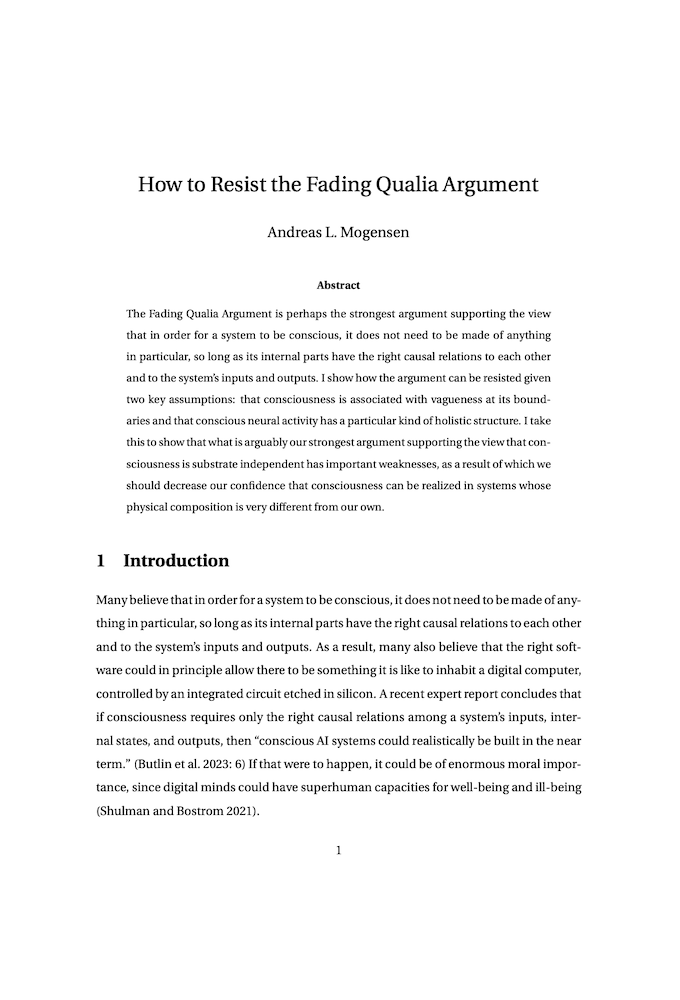How to resist the Fading Qualia Argument
Andreas Mogensen (Global Priorities Institute, University of Oxford)
GPI Working Paper No. 5-2024
The Fading Qualia Argument is perhaps the strongest argument supporting the view that in order for a system to be conscious, it does not need to be made of anything in particular, so long as its internal parts have the right causal relations to each other and to the system’s inputs and outputs. I show how the argument can be resisted given two key assumptions: that consciousness is associated with vagueness at its boundaries and that conscious neural activity has a particular kind of holistic structure. I take this to show that what is arguably our strongest argument supporting the view that consciousness is substrate independent has important weaknesses, as a result of which we should decrease our confidence that consciousness can be realized in systems whose physical composition is very different from our own.
Other working papers
Do not go gentle: why the Asymmetry does not support anti-natalism – Andreas Mogensen (Global Priorities Institute, Oxford University)
According to the Asymmetry, adding lives that are not worth living to the population makes the outcome pro tanto worse, but adding lives that are well worth living to the population does not make the outcome pro tanto better. It has been argued that the Asymmetry entails the desirability of human extinction. However, this argument rests on a misunderstanding of the kind of neutrality attributed to the addition of lives worth living by the Asymmetry. A similar misunderstanding is shown to underlie Benatar’s case for anti-natalism.
How effective is (more) money? Randomizing unconditional cash transfer amounts in the US – Ania Jaroszewicz (University of California San Diego), Oliver P. Hauser (University of Exeter), Jon M. Jachimowicz (Harvard Business School) and Julian Jamison (University of Oxford and University of Exeter)
We randomized 5,243 Americans in poverty to receive a one-time unconditional cash transfer (UCT) of $2,000 (two months’ worth of total household income for the median participant), $500 (half a month’s income), or nothing. We measured the effects of the UCTs on participants’ financial well-being, psychological well-being, cognitive capacity, and physical health through surveys administered one week, six weeks, and 15 weeks later. While bank data show that both UCTs increased expenditures, we find no evidence that…
The weight of suffering – Andreas Mogensen (Global Priorities Institute, University of Oxford)
How should we weigh suffering against happiness? This paper highlights the existence of an argument from intuitively plausible axiological principles to the striking conclusion that in comparing different populations, there exists some depth of suffering that cannot be compensated for by any measure of well-being. In addition to a number of structural principles, the argument relies on two key premises. The first is the contrary of the so-called Reverse Repugnant Conclusion…

